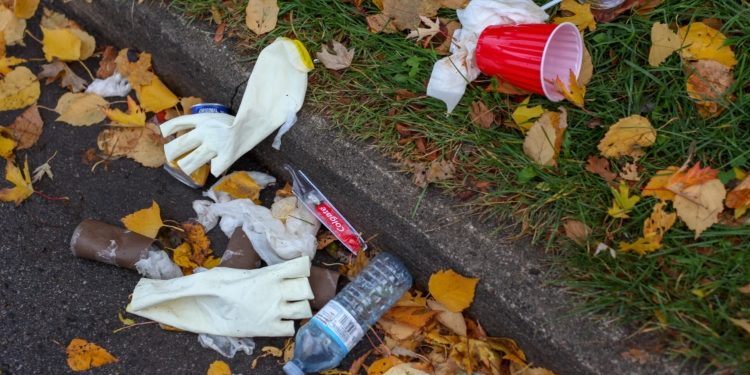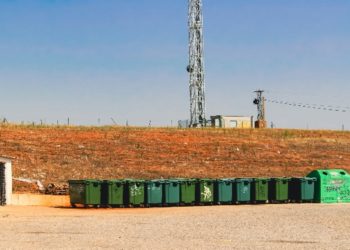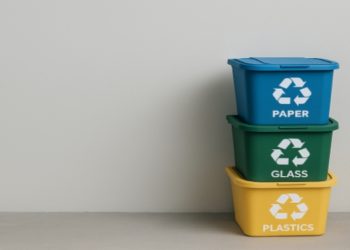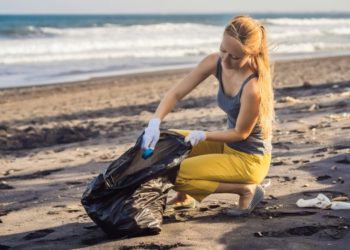Every time the news comes on, someone’s always talking about climate change and environmental pollution amongst other brow-raising problems that affect the climate. While most people would ignore that bit of the news and others may not, we must all start taking it seriously.
One of the biggest factors that contribute to climate change is our waste and how we dispose of it. Despite our best efforts at trying to manage it by creating an effective waste management system, the problem seems to be growing rapidly and it is getting harder for it to be contained.
In Universities, due to the negative attitude of students toward proper waste disposal, environmental pollution seems to be a growing problem, and university officials struggle with the best ways to manage it. Hence, waste sorting. So what then is waste sorting and why are people making so much fuss about it?
To understand this you need to know the effects of poor waste management in societies;
What are the effects of improper waste management?
Soil Contamination
In a perfect world, all of our waste products such as; plastic, metal, glass, and paper waste would be properly disposed of and end up at a recycling facility. This waste then returns to the community as a renewable product. This topic is the subject matter of most of the environment control essay assignments given in schools. There is freedom however to choose the available titles for your environmental essay or term project. We do not live in a perfect world, however, and the reality of it is quite different. The human environment interaction has done severe damage to the soil.
When hazardous substances caused by waste are spilled into the soil, it contaminates it and renders that soil infertile or causes plants grown on that soil to become poisonous. Now when we eat out of the proceeds of the crop, it could cause us harm. It is a vicious cycle!
Water Contamination
When harmful substances seep into the nearby water bodies, it causes pollution that can be spread right into your neighborhood pond, lake, fountains, and even drinking water taps. Contaminated water usually contains chemicals and gasses that are extremely hazardous to not only our health but to marine life as well.
The vicious cycle continues; waste is dumped into the ground, and the soil and groundwater absorb it. It channels its way into bodies of water. Waste in the water kills marine life, the carcasses float on the water and become breeding grounds for harmful insects like the mosquito. This in turn comes to bite us, spreading diseases and causing epidemics.
Air Contamination
The contamination of our air plays a major role in the cause of global warming. Most people dispose of waste by burning it. Paper and plastic are being burned; this
causes chemicals to be released into the air. These chemicals build up in the ozone layer and pollute the air; causing harmful gas to have toxic effects on us.
Climate change
The extreme weather conditions that are currently happening in our societies are caused by ineffective waste management systems. Decomposing waste creates toxic greenhouse gases. These gases rise and trap heat in the atmosphere. Extreme weather conditions such as typhoons and storms occur as a reaction to this build-up. The temperature becomes either too hot or too cold. Rain begins to fall incessantly or not at all. Hailstorms, acid rain, and radioactive pollution begin to occur.
Source: https://unsplash.com/photos/t06aN6vewaQ
How can students deal with waste sorting on campus?
For a conducive and safe environment to learn and live in, students in colleges need to do their part in waste sorting to reduce environmental pollution. Some of the ways include;
Separating waste
This is the first step to take in managing your school’s waste. Bins should be placed in every corner prone to high traffic of students. The bins should be clearly labeled to only contain plastic, glass, metal, cans, and organic waste. This way, students can dispose of their various rubbish in bins made for it.
Recycling waste
For recycling to work, officials of the school should enlighten students on the process of recycling and reusing waste. Items such as cardboard and paper, glass, plastic, and cans should be recycled. Avoid burning waste like the plague. There are waste management councils in every city, find out the best way to dispose of the waste in your area.
Composting
This refers to separating organic waste like scraps of food, plants, and other rubbish. Instead of disposal, composts can be used as fertilizers in school gardens or sent to farms nearby. You will not only be saving on the cost of fertilizer but would be preventing contaminations as well.
Author: James Collins is a content writer and researcher. He enjoys writing about topics that concern humanity. James is an environmental protection enthusiast. In his free time, he promotes awareness of the dangers of pollution and the best ways to prevent it.


![7 Best POS Software in the UK [2026 Edition]](https://todaynews.co.uk/wp-content/uploads/2026/02/7-Best-POS-Software-in-the-UK-2026-Edition-360x180.png)










































































